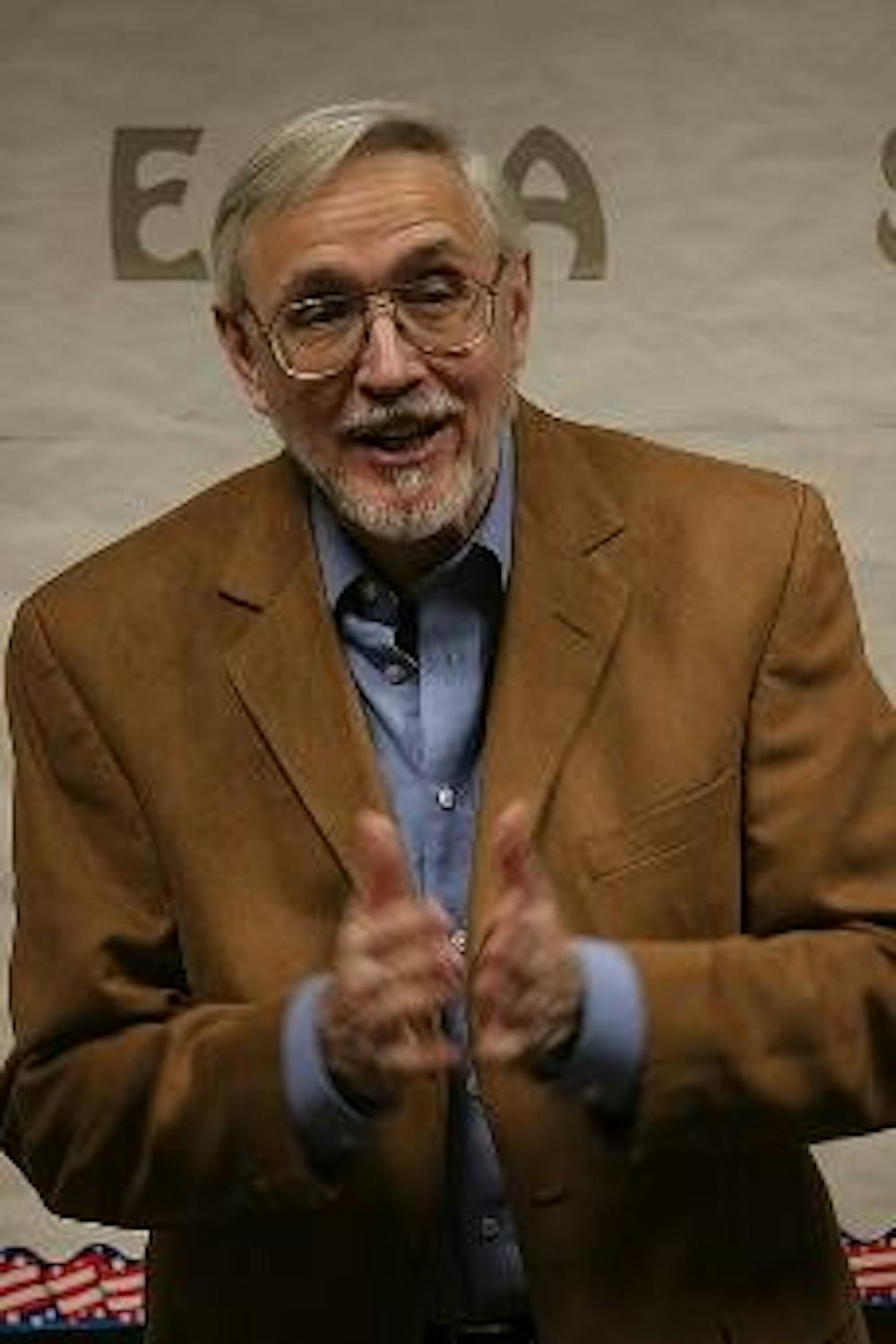Newly appointed Cuban President Raúl Castro may bring only gradual change to Cuba's economic and political structures if his administration and the United States do not make a stronger effort to improve relations, School of Public Affairs Dean William LeoGrande said yesterday evening at a "Cuba and Castro" lecture.
Though Raúl is more pragmatic than his brother Fidel, who resigned last week after almost 50 years in power, there remain several obstacles impeding economic progression for Cuban citizens. However, the main roadblock may be U.S. restrictions on trade and travel to Cuba, according to LeoGrande.
The U.S.'s current trade embargo on the country limits U.S. businesses and citizens from conducting business with interests in Cuba. Under U.S. law, the only Americans allowed to travel to Cuba are reporters, scholars and Cuban-Americans every three years. Despite this embargo, the U.S. is Cuba's seventh largest trading partner, LeoGrande said.
Though Raúl has expressed an interest in opening dialogue with the U.S. since he took on Fidel's duties in July 2006, the State Department has made it clear it does not want to deal with any member of the Castro family, according to LeoGrande. Easing U.S. restrictions may not bring immediate change to Cuba, but it would facilitate any improvements to the country as evidenced by Cuba's increased involvement in the international trade scene in the past few years.
LeoGrande said he saw the benefits of greater Cuban trade involvement last week when he traveled to the capital city of Havana for the University of Havana's 280th anniversary. LeoGrande said new buses bought from China have improved the quality of public transportation in the capital.
Josh Casey, a sophomore in the College of Arts and Sciences who attended the lecture, said an influx of tourism and improved trade in Cuba would allow for a greater mix of ideas. Casey said his job two years ago at the offices of Rep. Ileana Ros-Lehtinen, R-Fla., taught him that generally older Cuban-Americans support the embargo because they lost money and assets during the revolution.
"You want to be reimbursed for what you lost," he said.
Younger Cuban-Americans are more likely to support easing U.S. restrictions on Cuba as they are generally less nostalgic about pre-Castro Cuba and more willing to seek change for Cuba's future. The three current Cuban-American members of Congress, Ros-Lehtinen, R-Fla., Mario Diaz-Balart, R-Fla., and Lincoln Diaz-Balart, R-Fla., have recently faced strong challenges during elections from Cuban-American candidates moderate to U.S. relations with Cuba. Sen. Barack Obama, D-Ill., has also courted these moderate Cuban-Americans extensively, LeoGrande said.
Sen. Hillary Clinton, D-N.Y., has chosen to embrace her husband's conservative stance on Cuban restrictions while Obama suggested he would be more open to communicating with the U.S's "adversaries," LeoGrande said. The fruition of Raúl's offer for a more amiable relationship with the U.S. may depend on the stance of future U.S presidents and government leaders.
The event, held in the Leonard Hall Chancery, was the launch of SPA's new Student-Professor Lecture Series.





